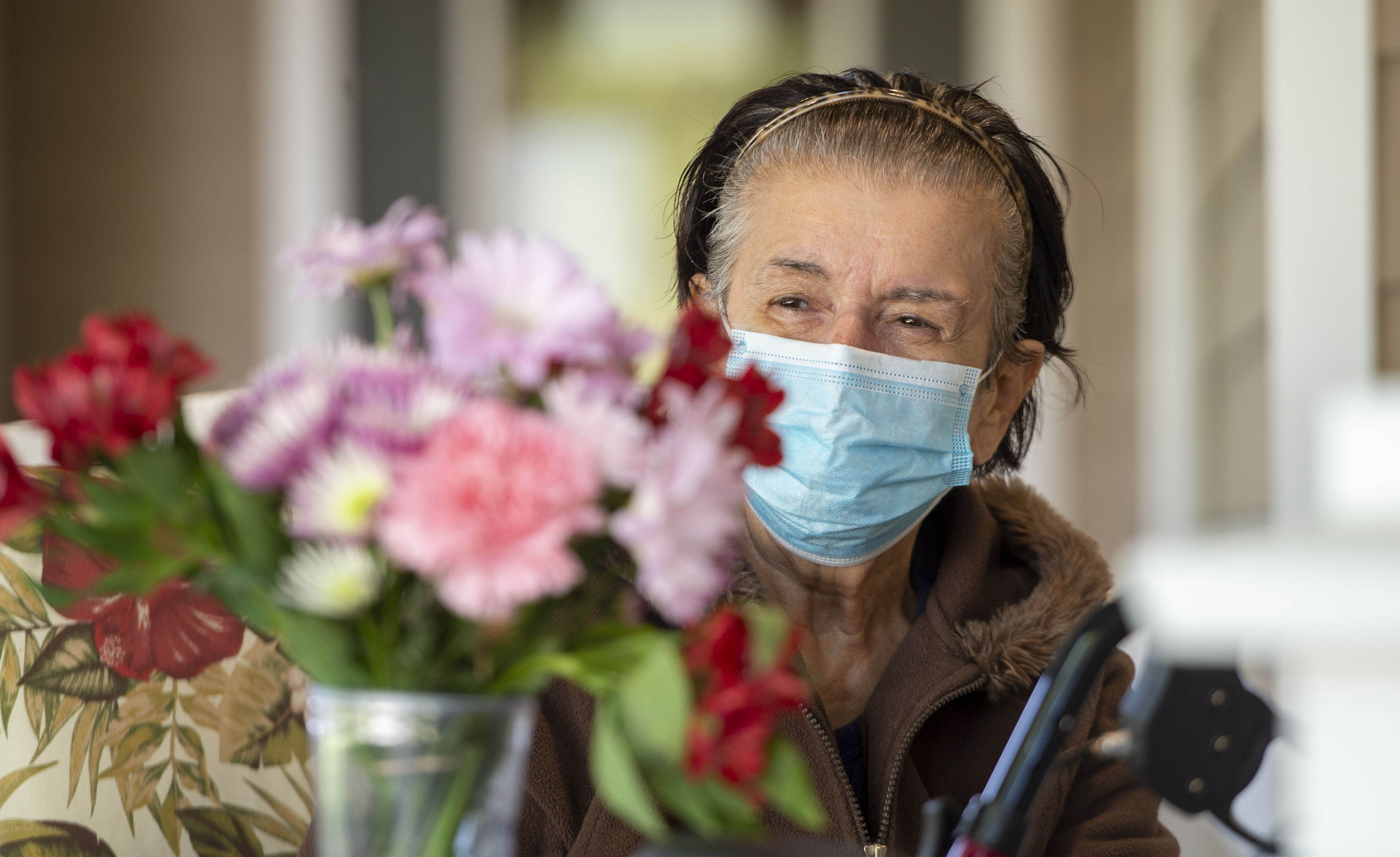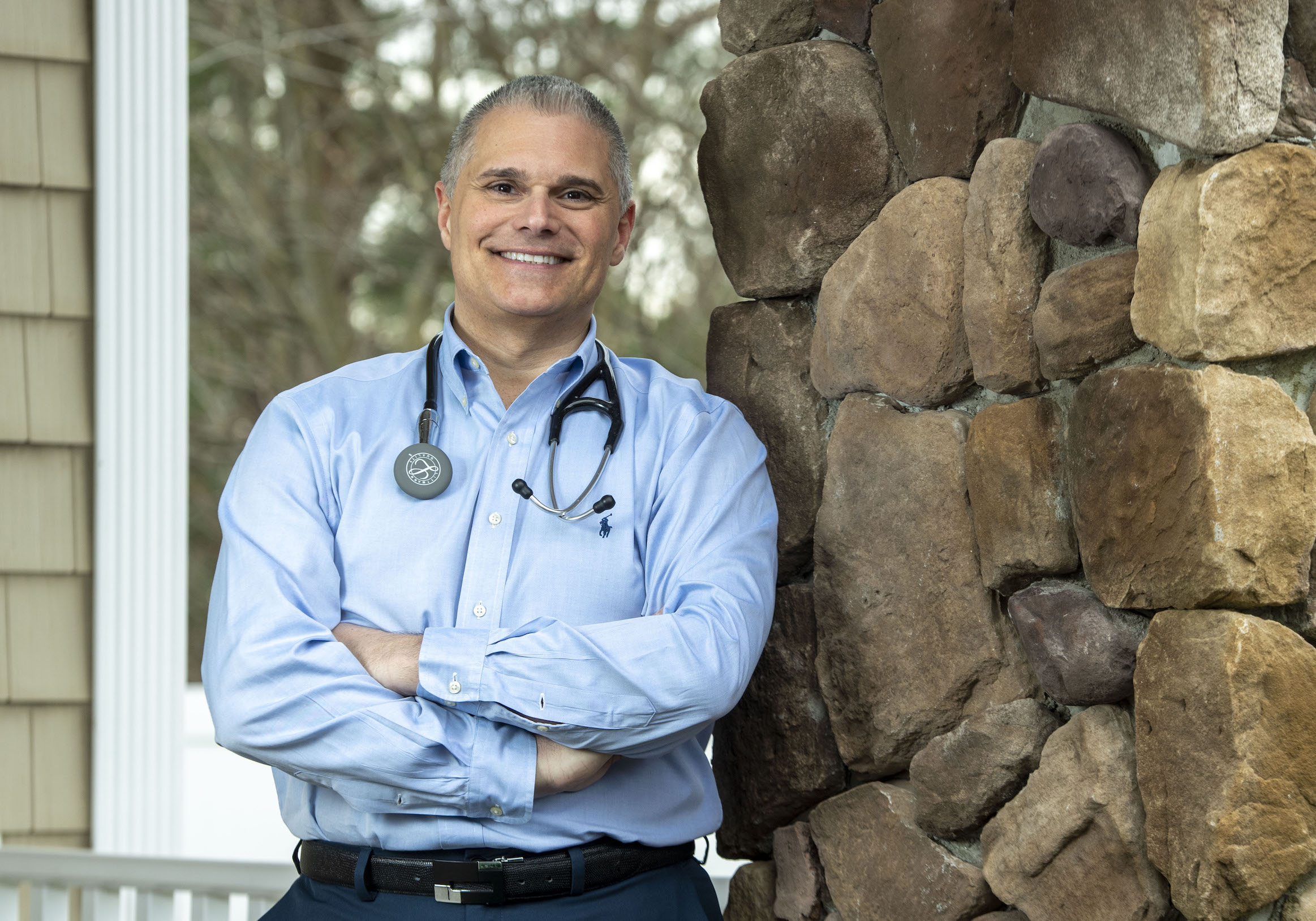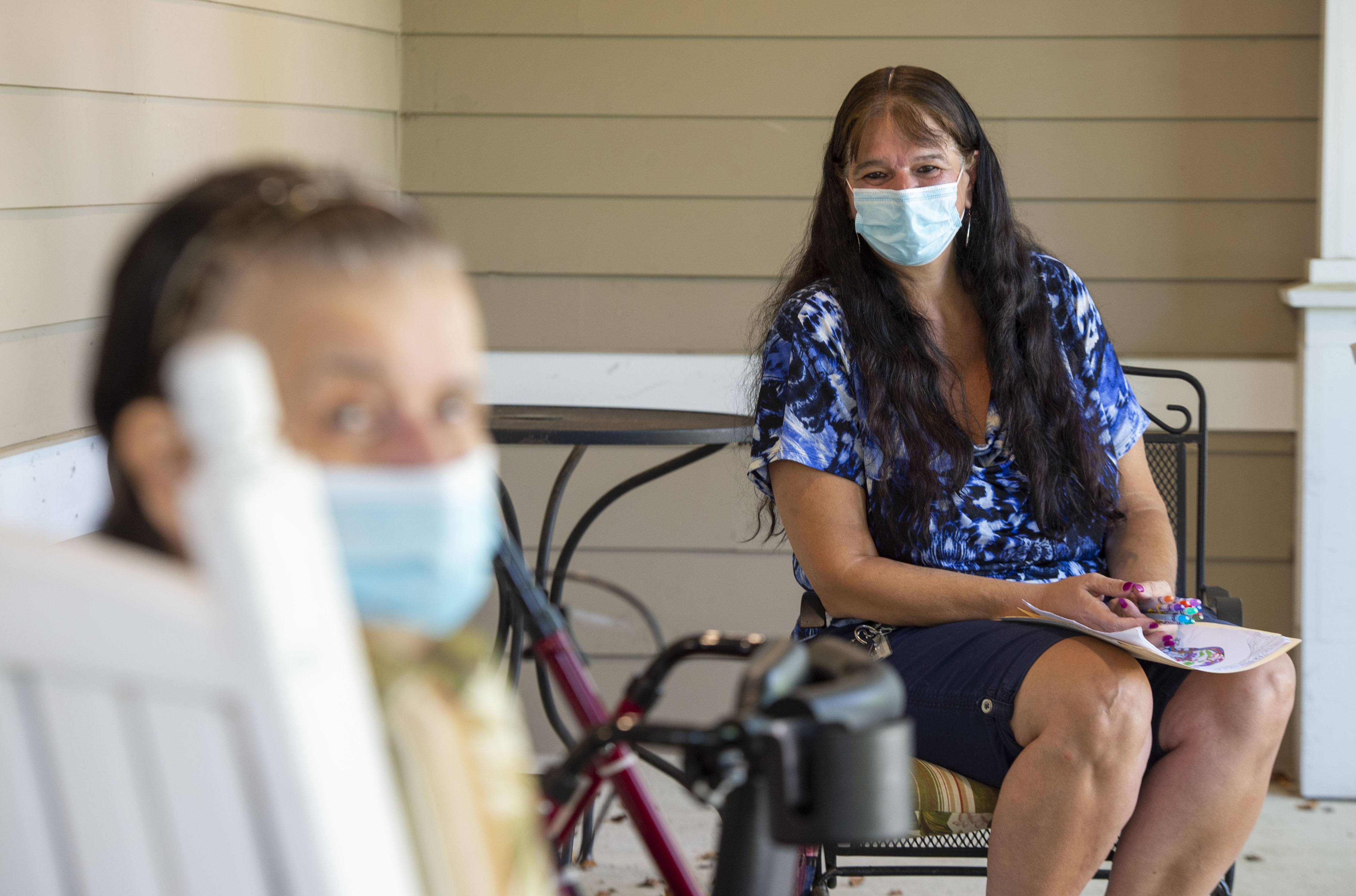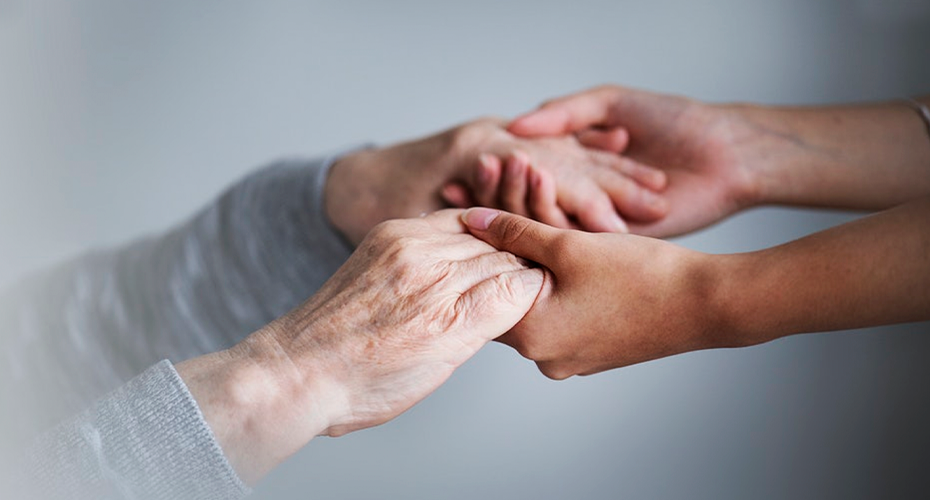Jul 20, 2020
'How am I going to take care of my mother?'
When Karen Maguire’s father died last year, she worried how she would care for her ailing mother, who suffers from dementia and Alzheimer’s disease.
“I thought, ‘How am I going to take care of my mother? I need to work, I have a house, mortgage, bills to pay.’ I was a little overwhelmed,” Maguire recalls.
Eventually, she moved her mother into an acute care facility next to her condo in Tewksbury, Mass. Then the COVID-19 pandemic struck.
In March, Maguire got a call from the facility telling her visitors were no longer allowed per the state mandate.
I thought, ‘My mother lost her husband. Now, I can’t come in and see her, so it’s like she’s lost her children, too.
- Maguire said
Isolated and struggling to understand why she couldn’t see loved ones, Maguire’s mother had several emotional outbursts that required transfers to the ER, a geriatric psychiatric ward, back to her facility and to the ER again. “This is not like my mother. She was a foster mother for 17 years. She was a Eucharistic minister,” Maguire says.
With every transfer, Maguire worried about her mother’s exposure to COVID-19.
Finally, she made the only decision she felt she could. She called the facility and said, “I’m coming to take custody of my mother.”

Difficult decisions
Dr. Anthony Zizza, a geriatrician, says Maguire is not alone in making agonizing choices about how to best care for loved ones during the pandemic.
“Each family has to weigh the potential risks of coronavirus exposure inside and outside the facility as well as their ability to care for their loved ones and the need for social connection, which often can be a lifeline for these patients,” said Zizza, who is regional medical director for Landmark Health, a house calls program offered to Blue Cross Blue Shield of Massachusetts Medicare Advantage members who have multiple chronic health conditions, like Maguire's mother.

Zizza offers guidance for individuals caring for elderly relatives:
If your loved one lives in a nursing home or long-term care facility:
Stay in frequent contact with facility staff and loved ones to “make sure staff members are keeping patients healthy and aggressively managing chronic conditions to keep them out of the hospital and rehab facilities, where their risk for contracting COVID-19 increases,” Zizza says. He advises caregivers to “educate themselves on the quality of the nursing home and whether they’re taking necessary precautions” to decrease the risk of transmission of the virus. If you feel they are not taking these precautions, “consider an alternative placement into a safe, compliant facility,” Zizza says. Lastly, he cautions against taking lightly the decision to bring loved ones home: “There are some cases where there is an opportunity to care for a loved one at home, but sometimes, this can cause more problems down the road.”
Under her care, Maguire said, her mother ate healthy foods, did aerobics and took frequent walks and lost 10 pounds. But she still worried about her mom’s safety. After four weeks, she decided to move her back into the acute care facility next door.
Fortunately, a few weeks after the move, Massachusetts facilities opened for outdoor visits. Maguire visits her mom twice a week, and the two sit six feet apart and wear masks. She tells her mom the precautions are because she has a cold: “There are germs around,” she says, “and we need to stay healthy by staying apart.”

If your loved one lives with you:
Zizza advises treating yourself as though you are a senior with multiple chronic conditions in order to minimize the risk of contagion to your loved one living with you. This includes being vigilant about new or concerning COVID-19 symptoms, decreasing your time in crowds, avoiding close contact with those who are sick, wearing a mask and washing your hands often with soap and water for at least 20 seconds, especially when you return home. “If you contract the virus, you can inadvertently pass it to the vulnerable older adults living with you.” Zizza says. “My in-laws live with us, and we are being extra cautious when we go out, knowing that, if we contract it, we could easily pass the virus to my in-laws who both have chronic conditions. My wife and I would likely be just fine, perhaps even asymptomatic, but my in-laws have a higher chance of becoming critically ill.”
If your loved one lives close by:
Zizza encourages caregivers to make sure loved ones have what they need, including face coverings, medications and groceries, either by bringing those items over or having them delivered. If you visit, he says, “Keep social distance in the home as well. Immediately wash your hands when you enter, and make sure you wear a mask.” He adds, “The biggest thing is staying connected with your loved ones through regular phone calls or video visits and being creative about showing affection in ways that honor social distancing. Instead of hugging, say, ‘I love you, I miss you.’ And make sure you get the grandkids on video—seniors care about their kids, but they really want to see their grandkids.”
If your loved one lives out of state:
Pick a point person you can trust to help care for your loved one, such as a family member, friend or caregiver you hire, and schedule regular “touch-bases” with them and your loved one’s doctors. “Don’t put all of the burden on yourself—try to mobilize your community to help you,” Zizza says.
Have end-of-life discussions
One of the most important steps you can take during this time, Zizza says, is to revisit or begin a conversation with your loved one about their end-of-life wishes and preferences, and what is most meaningful to them at this stage of their lives. “We all, regardless of our age, should reflect upon certain questions if we become positive for COVID-19 so we can help each other navigate through the experience. Would we want to be on a ventilator? Do we know what that means? What are my chances of a meaningful recovery? Would I return to my previous level of functionality if I had to be on a ventilator in the ICU for days to weeks? How much would I be willing to accept in terms of medical intervention? Families that discuss these questions and are proactive at documenting them will be better prepared when they need to face these difficult decisions.”
‘A blessing’
Like Maguire, Jennifer Royce also decided to move her parents into her Boxborough, Mass., home, with the support of the Landmark program. The couple had been living in a memory care facility because her dad has Alzheimer’s disease and her mom had a stroke in 2018 that caused subsequent dementia and mobility issues.
Royce and her sister would visit every week for a few hours at a time to provide “eyes-on caring”—filling medications, changing seasonal clothes out, getting them new slippers and watching for skin tears. “I’m not just a family member, I’m a caregiver,” she says.
“When the facility called on March 12 and told us we couldn’t go into the building, ‘I literally freaked.’” Eight days later, her father caught the flu, and Royce decided to bring her parents home.
“I called my husband and two friends, and we moved them in,” Royce said. “I thought, ‘During the pandemic, I’ll keep them here, and when this clears, we’ll find them a good place to live. We really wouldn’t have considered bringing them here a solution, but it quickly became the only solution.”
Royce’s husband became the household chef, learning the foods her parents liked, while her sisters provided daily support, one from a few towns away and one from Florida. Hospice nurses came in to care for both of her parents, until her mom passed away on May 14, with all of her family around her.
We had her for seven weeks. Absolutely it was the most precious time I’ve spent with my parents.
"Otherwise, we never would have been that close,” she said. “It’s a blessing we all were able to be with my mom. I was able to spend time with her during her last breaths the night she died, and she passed peacefully in her sleep.”
For now, Royce has decided to keep her dad with her. “I think we can do it here, and I’m not sure I want to put him through another move,” she says.
He often asks, “Am I staying here?” and when Royce says, “Absolutely, you’re staying,” his eyes fill with gratitude and he says, “Thank you so much.”
She and her dad walk in the morning when they can, and he helps her water the plants in her yard: “We try to go to cool places and see the swans and the geese and the snapping turtles laying eggs in a trail behind the Acton cemetery. We live in the woods, and we enjoy seeing the fox, bunnies, deer and their fawn as they pass through. He loves watching the squirrels and chipmunks and birds and going outside whenever he wants.”
She is focused on enjoying the time she has with him, just as she did with her mom. “COVID was a blessing,” she says. “It brought my parents home to me for their final journey.”
Did you find this article informative?
All Coverage content can be reprinted for free.
Read more here.
PHOTOS BY CHRIS EVANS

